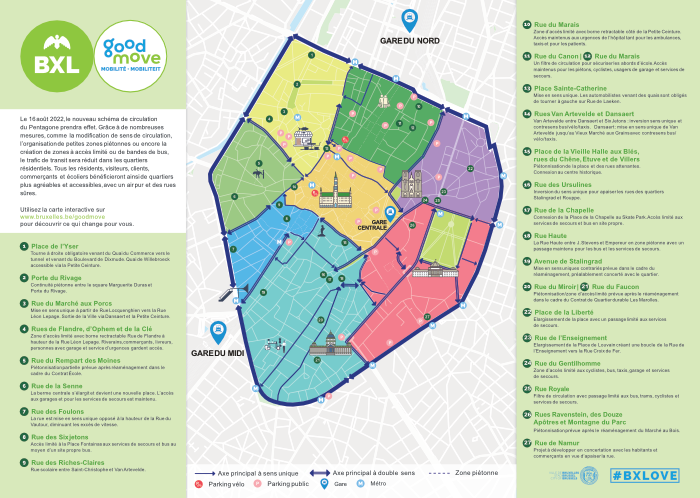
Photo: Alexander Van Steenberge/Unsplash
Brussels’ mobility plan cuts public transport delays
06 April 2023
by Christopher Carey
A report from Brussels’ public transport company STIB has revealed that trams and buses have cut one to five minutes off their travel times thanks to the city’s Good Move plan.
The initiative, which was launched in August 2022, has seen cars rerouted in and around the city centre, and cyclists and pedestrians prioritised.
According to research by the city from February, car traffic in the Pentagon neighbourhood has fallen by around 19 percent since the introduction of the plan, while the number of cyclists has risen by 23 percent in the morning and 13 percent in the evening rush hour.
“The results confirm the success of the Good Move plan’s low-traffic neighbourhoods,” said Elke Van den Brandt, Brussels-Capital Region’s minister for mobility, public works and road safety.
“We see that with relatively simple and very inexpensive measures, such as reducing the pressure of car traffic and creating traffic lanes for public transport, we can make historic progress in terms of our public transport traffic situation.”
Good Move
Within the Good Move plan, 63 ‘meshes’ – large neighbourhoods in which through traffic is reduced – have been identified across the Brussels Region.
The intention is to direct traffic that does not need to travel through the neighbourhoods via routes outside it or to one of the city’s public car parks.
The city says this in turn makes the neighbourhoods safer and greener, and boosts air quality.

According to Bart Dhondt, Brussels’ alderman for mobility, the plan will play a huge role in achieving the region’s ambition of reducing car traffic by 24 percent by 2030.
Backlash
The plan has faced criticism however.
In October, protesters in the Schaerbeek neighbourhood tore down bollards and traffic signs and dumped them on the steps of city hall, set off fireworks and pelted firefighters with eggs in response to changes made to roads.
The city subsequently backtracked and suspended the scheme there.
In the Marolles district, the measures included closing five local roads and changing the direction of traffic on some streets, which led to residents questioning how safe the changes were and whether they discriminate against people with reduced mobility.
Political parties have also complained about the scheme’s €6.5 million (US$7 million) cost, claiming that the bill will at least double.
Image: Alexander Van Steenberge/Unsplash






